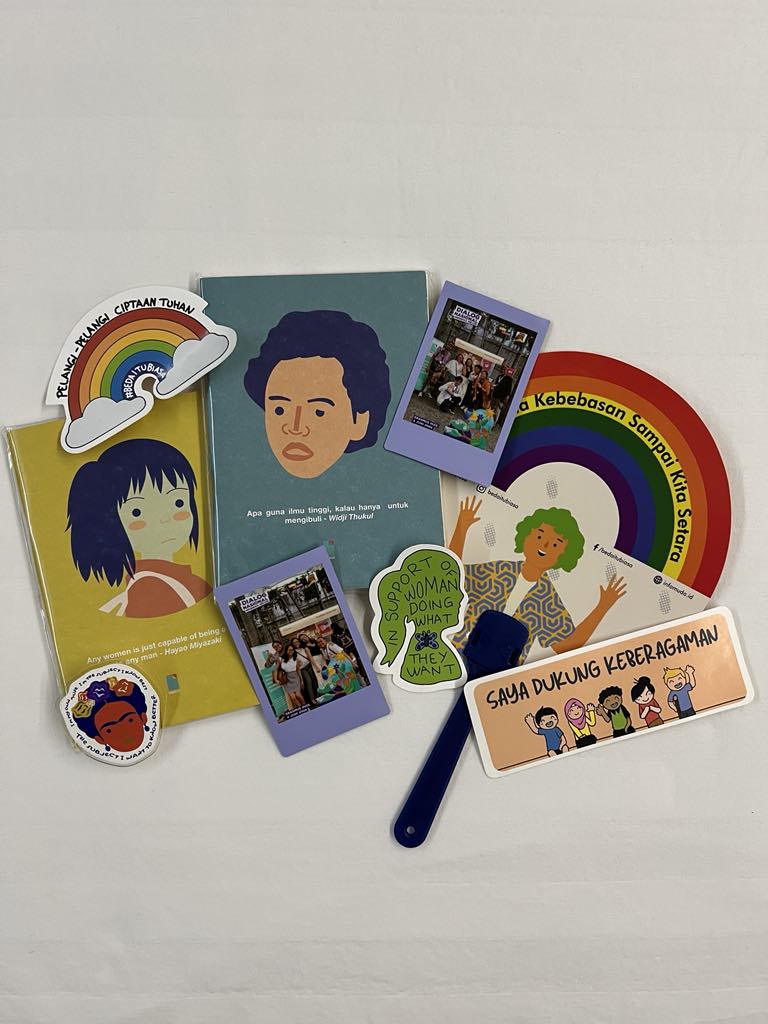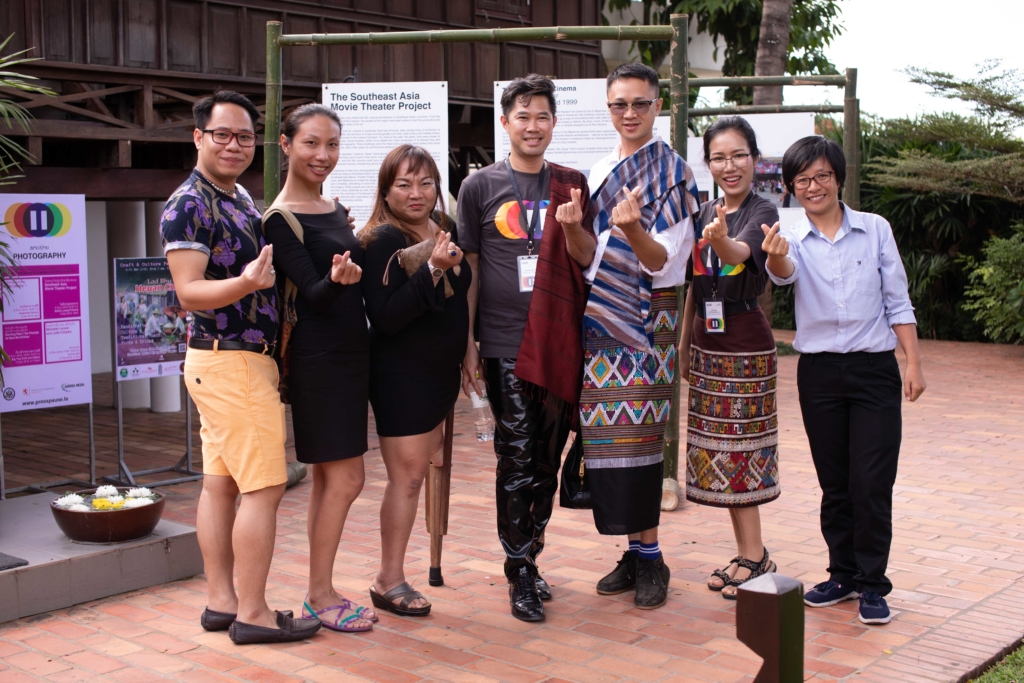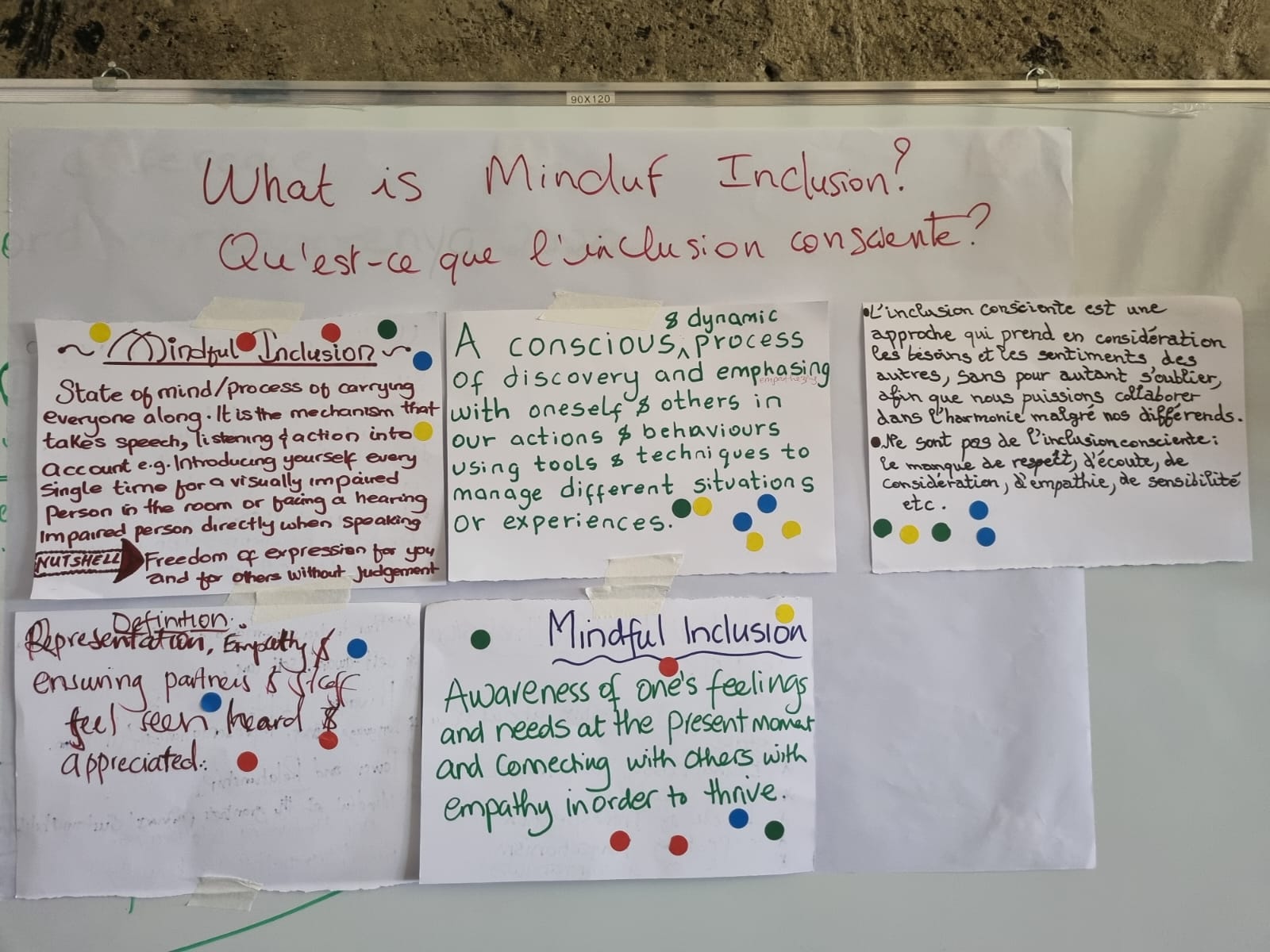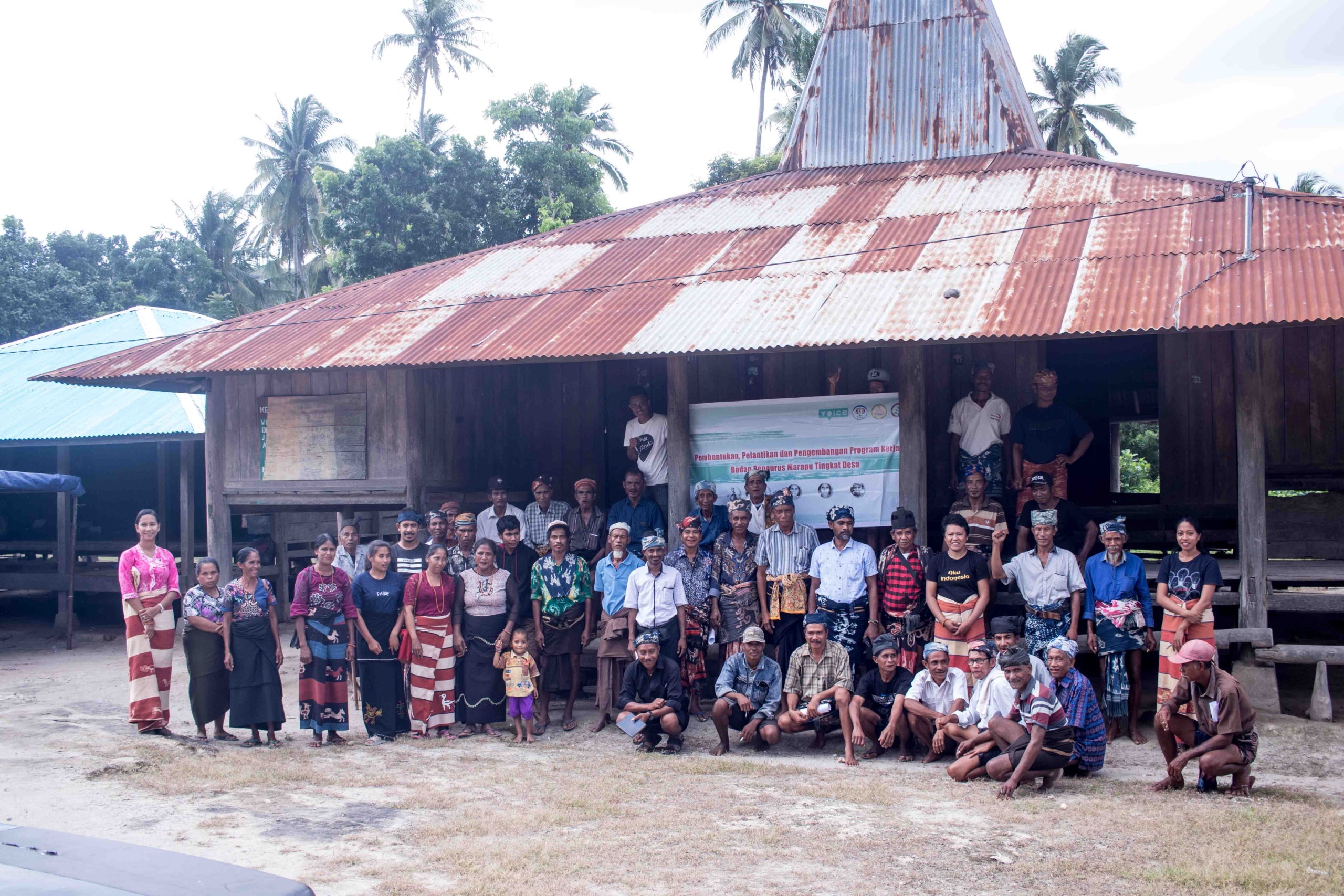Kampung Katong Festival: Producing Local Knowledge in Building Our Villages
by Giany Prastiwi, Linking, Learning and Amplifier Officer, Voice in Indonesia
Through the project of Kampung Katong (Our Village), RMI and its consortium (Lakoat.Kujawas, Videoge, and Simpasio Institute) focus on mainstreaming local initiatives into social movements towards inclusive development. Kampung Katong is short for Kami Pung Manekat, Papada, Kampo Tanga[i] which means Our Spirit for Collective Work. Staying true to its meaning, the consortium held several discussions to strengthen local youth-led community-based initiatives. This included topics on project management, access to resources, and ownership of their local culture. Their final project held a festival titled “Festival Kampung Katong: Membangun dari Kampung” or Festival Kampung Katong: Building from Our Village on 5-7 October 2023 in Labuan Bajo, NTT (East Nusa Tenggara), Indonesia.
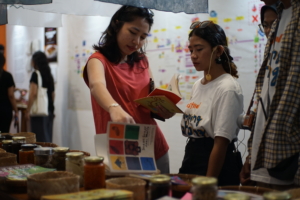
The festival stems from their concerns about the high number of youth migrating to big cities and abroad due to the stigmatisation that the NTT area is underprivileged due to its high rate of malnutrition and stunting, as set by government standards. If only those standards were not just material possessions but protected forests, seas and local culture, the NTT would be seen otherwise.
Due to youth migration, critical questions popped up: Who will manage the village? Will it be led by the generations who do not come from the local community? Who will take care of the diversity of the local knowledge, culture and natural resources? How can commonality, equality and solidarity be maintained amidst the threat of loss of various local knowledge and wisdom?
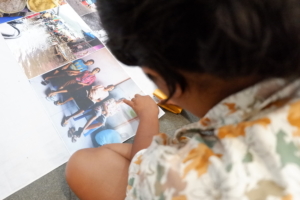
Through Kampung Katong and the spirit of decolonisation, the initiative sought to position local reality as the main reference in solving problems faced by the community on a daily basis. Local knowledge and identity become the compass in resolving socio-environmental problems and enriching culture, education, community welfare, and the sustainability of living spaces and livelihoods. This process takes place by involving young people, women, indigenous peoples and ethnic minorities, and local citizens as key actors enabling cross-generational contextual learning.
There were a lot of learning materials showcased at the festival, such as traditional local narratives and rich and diverse local food information turned into audio-visual forms. Those were transformed into an art installation, and there was also a series of discussion with other local communities and stakeholders.
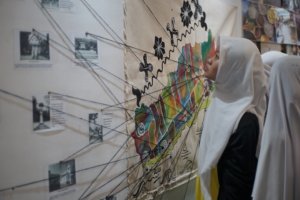
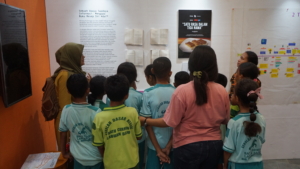
Apart from the exhibition, the three local communities also conducted cooking classes about their own local food. Part of Lakoat.Kujawas, Mama Fun and Erlis cooked kacang arbilla hutan (lima beans), rebung (bamboo shoots), jagung bose (bose corn), and sambal lu’at (fermented chilli sauce). For me, the taste is unique yet quite familiar. The kacang arbilla hutan tastes like a red bean with herbs from turmeric, ginger, garlic, shallot, lemongrass, and mint leaves; the jagung bose tastes savory; the rebung with an earthy taste, and the sambal lu’at compliment with three because it’s spicy, sour, and has a unique smell. I can feel the richness from how they protect and promote local food so the Mollo people does not need to depend on rice or modern food.
“Food crises are everywhere. One of our identities as Mollo is food. So, we brought kacang arbilla hutan here to introduce ourselves; it has been consumed since the days of our ancestors. This kacang arbilla hutan must be cooked 12 times to remove the poison. How do we know whether some foods are poisonous or not? Yes, from the ancestors. So, it is important to disseminate this local knowledge to the next generation, otherwise, we will lose our identity”
– Mama Fun, Lakoat.Kujawas
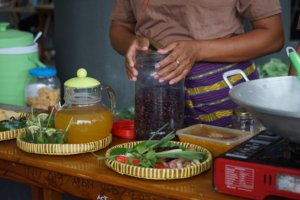
Through this Kampung Katong Festival, they celebrated their local identity and knowledge, raised awareness, built ownership and recognised the archiving work initiated by young people. This challenges the stigma that young people are not knowledgeable, experienced and willing to care for their own land. Their presence to build their own village is strengthened by their efforts, thoughts and independent actions to overcome issues in their village through organising active citizens.
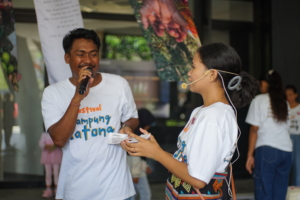
About the consortium:
Lakoat.Kujawas: Preservation of Indigenous Knowledge Through Critical-Contextual Education
The threat of fading community traditions and the climate crisis prompted Lakoat.Kujawas to document local knowledge as the identity of the Mollo people. For example, documenting food recipes, experimenting with local food, archiving seeds, holding festivals and exhibitions, and strengthening the capacity of local young people.
Simpasio Institute: Documenting the Traditions of the Nagi Malay Community in Larantuka
Simpasio Institute is an archiving and cultural research institution in East Flores, accommodating young people. Their space facilitates the production of contextual cross-generational knowledge, for example regarding the modernisation of the traditional medicine of the Nagi Larantuka Community which is increasingly unfamiliar in the eyes of its own young people. This community documents knowledge about traditional dance and music, village history, local food, as well as other local cultures.
Videoge Collective: Young People Record the Old Village
Videoge positions itself as a “laboratory of creativity” for local knowledge in Labuan Bajo. They use a unique learning process, namely the production and distribution of audio-visuals in the form of micro-documentaries, the production of catalogs, books, and even an event approach through a series of Pesta Kampung/Village Festivals. During the process a Village Festival, it is essential to create the involvement of the young people. It brings them closer to their own hometown amidst massive tourism development in Labuan Bajo.
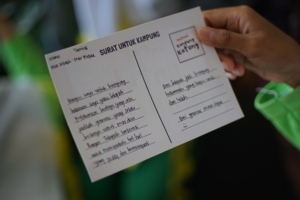
[i] Manekat, Papada, and Kampo Tanga are local terms from Mollo (Lakoat.Kujawas), Labuan Bajo (Videoge) and Larantuka (Simpasio Institute) representing “collective work for community”.

